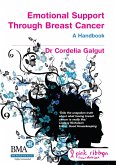Clare Gerada
Handbook of Physician Mental Health (eBook, PDF)
33,95 €
33,95 €
inkl. MwSt.
Sofort per Download lieferbar

17 °P sammeln
33,95 €
Als Download kaufen

33,95 €
inkl. MwSt.
Sofort per Download lieferbar

17 °P sammeln
Jetzt verschenken
Alle Infos zum eBook verschenken
33,95 €
inkl. MwSt.
Sofort per Download lieferbar
Alle Infos zum eBook verschenken

17 °P sammeln
Clare Gerada
Handbook of Physician Mental Health (eBook, PDF)
- Format: PDF
- Merkliste
- Auf die Merkliste
- Bewerten Bewerten
- Teilen
- Produkt teilen
- Produkterinnerung
- Produkterinnerung

Bitte loggen Sie sich zunächst in Ihr Kundenkonto ein oder registrieren Sie sich bei
bücher.de, um das eBook-Abo tolino select nutzen zu können.
Hier können Sie sich einloggen
Hier können Sie sich einloggen
Sie sind bereits eingeloggt. Klicken Sie auf 2. tolino select Abo, um fortzufahren.

Bitte loggen Sie sich zunächst in Ihr Kundenkonto ein oder registrieren Sie sich bei bücher.de, um das eBook-Abo tolino select nutzen zu können.
The book builds on themes introduced in the award-winning publication, Beneath the White Coat: Doctors their Minds and Mental Health from the same author, providing an invaluable 'how to manage' companion to supplement and enhance the broader issues relating to doctors and mental illness addressed in that first book.
- Geräte: PC
- mit Kopierschutz
- eBook Hilfe
Andere Kunden interessierten sich auch für
![Handbook of Physician Mental Health (eBook, ePUB) Handbook of Physician Mental Health (eBook, ePUB)]() Clare GeradaHandbook of Physician Mental Health (eBook, ePUB)33,95 €
Clare GeradaHandbook of Physician Mental Health (eBook, ePUB)33,95 €![Wirkfaktoren der Achtsamkeit (eBook, PDF) Wirkfaktoren der Achtsamkeit (eBook, PDF)]() Michael E. HarrerWirkfaktoren der Achtsamkeit (eBook, PDF)49,99 €
Michael E. HarrerWirkfaktoren der Achtsamkeit (eBook, PDF)49,99 €![Principles and Practicalities of ENT (eBook, PDF) Principles and Practicalities of ENT (eBook, PDF)]() Keshav GuptaPrinciples and Practicalities of ENT (eBook, PDF)34,95 €
Keshav GuptaPrinciples and Practicalities of ENT (eBook, PDF)34,95 €![Emotional Support Through Breast Cancer (eBook, PDF) Emotional Support Through Breast Cancer (eBook, PDF)]() Cordelia GalgutEmotional Support Through Breast Cancer (eBook, PDF)22,95 €
Cordelia GalgutEmotional Support Through Breast Cancer (eBook, PDF)22,95 €![Life After Darkness (eBook, PDF) Life After Darkness (eBook, PDF)]() Cathy WieldLife After Darkness (eBook, PDF)23,95 €
Cathy WieldLife After Darkness (eBook, PDF)23,95 €![Revision Guide for MRCPsych Paper A (eBook, PDF) Revision Guide for MRCPsych Paper A (eBook, PDF)]() Elizabeth TempletonRevision Guide for MRCPsych Paper A (eBook, PDF)29,95 €
Elizabeth TempletonRevision Guide for MRCPsych Paper A (eBook, PDF)29,95 €![The Bell Lap (eBook, PDF) The Bell Lap (eBook, PDF)]() Muriel MurchThe Bell Lap (eBook, PDF)34,95 €
Muriel MurchThe Bell Lap (eBook, PDF)34,95 €-
-
-
The book builds on themes introduced in the award-winning publication, Beneath the White Coat: Doctors their Minds and Mental Health from the same author, providing an invaluable 'how to manage' companion to supplement and enhance the broader issues relating to doctors and mental illness addressed in that first book.
Dieser Download kann aus rechtlichen Gründen nur mit Rechnungsadresse in A, B, BG, CY, CZ, D, DK, EW, E, FIN, F, GR, HR, H, IRL, I, LT, L, LR, M, NL, PL, P, R, S, SLO, SK ausgeliefert werden.
Produktdetails
- Produktdetails
- Verlag: Taylor & Francis eBooks
- Seitenzahl: 198
- Erscheinungstermin: 22. Juli 2024
- Englisch
- ISBN-13: 9781040040966
- Artikelnr.: 72281984
- Verlag: Taylor & Francis eBooks
- Seitenzahl: 198
- Erscheinungstermin: 22. Juli 2024
- Englisch
- ISBN-13: 9781040040966
- Artikelnr.: 72281984
- Herstellerkennzeichnung Die Herstellerinformationen sind derzeit nicht verfügbar.
Dame Professor Clare Gerada is an international leader in practitioner health and, until recently, has led the largest physician health programme in the world. She is a Co-Chair of the NHS Assembly and Past President of the Royal College of General Practitioners, UK.
Introduction, Acknowledgements and About the Authors.
Chapter 1 Setting the Scene.
Practitioner Health. Competences. Practitioner Health (UK) vs. Physician
Health (North America).
Chapter 2 The Wounded Healer.
Chapter 3 Doctors and Mental Illness.Burnout. Compassion Fatigue.
Depression. Anxiety. Post-traumatic stress disorder (PTSD) Addictions.
Barriers To Seeking Help for Doctors Who Have an Addiction Disorder.
Problems Linked to Addiction. Why Do Doctors Develop an Addiction Disorder?
Changes In Presentations to Practitioner Health (2008-2022). Personality
Disorder. Autism. Attention Deficit Hyperactivity Disorder (ADHD). Bipolar
Affective Disorder (BPAD). Suicide
Chapter 4. Why Doctors Become Mentally Unwell.
Personality. Psychological 'Ego-defences'. Cognitive Distortions.
Organisational Defences. Choosing Medicine Wrongly.
Chapter 5 Risk of Mental Illness.
Socio-Political Factors. Culture And Practice. Blame And Fear. Stigma.
Shame. Bullying And Racism. Industrialisation Of Care. The Workplace. Sleep
Disturbance. Workload and Intensity of Work. Organisation, Resilience and
Working Practices.
Chapter 6 The Doctor and Their Speciality.
Speciality.
General practitioners. Psychiatrists. Surgeons. Anaesthetists.
Paediatricians.
Vulnerable Groups.
International Medical Graduates (IMGs). Support of IMGs. Female Doctors.
Chapter 7 Factors Influencing Seeking Help.
Fear of Lack of Confidentiality. Adapting to the patient role. Doctors
Treating Their Own. Tips for treating doctors with mental illness.
Patients, the public and their views of sick doctors.
Chapter 8 Engagement, Assessment, and Formulation.
Making Contact. The Consulting Room. Understanding Dual Responsibilities.
Setting And Maintaining Boundaries. Initial Assessment. Formulation.
Chapter 9 Suicide Risk and Management.
Assessing Risk. Eight Truths About Suicide.
Suicide Risk Factors in Doctors.
Life events. Isolation and Loneliness. Access to drugs. Self-harm versus
suicidality.
Managing The Suicidal Patient.
Chapter 10 Impact of Complaints.
Complaints. Relationship Between Mental Illness in Doctors and Complaints.
Dealing With Complaints.
Chapter 11 Mental Illness and Professionalism.
Receiving a Complaint. Professional Behaviour. Involving The Regulator?
Refer Or Not Refer? GMC Health Procedures. Outcome Of GMC Investigations.
Medical Practitioners Tribunal Service (MPTS). Reasons For Sanctions by The
Regulator. Report Writing.
Chapter 12 Confidentiality and Information Sharing.
Information Sharing. The Caldicott principles.
Chapter 13 Management of Mental Illness.
Management of Burnout, Depression and Anxiety. Management of Addiction.
Stages Of Recovery. Overcoming Ambivalence to Change. Motivational
Interviewing. Making The Diagnosis of Addiction. The Aim of The Assessment.
Detoxification. When to refer doctors with substance misuse disorder to the
regulator (GMC or GDC). Doctors With Substance Misuse and Regulatory
Involvement. Abstinence vs. Substitute Treatment and Controlled Drinking.
Supporting Recovery. Relapse.
Mutual Groups Supporting Addiction.
The Sick Doctors' Trust (SDT). The British Doctors' and Dentists' Group
(BDDG). The Dentists' Health Support Trust (DHST). Other mutual support
groups.
Return To Work. Outcome. Management Of Bipolar Disorder.
Chapter 14 Presenteeism.
Chapter 15 Returning to Work.
Timing Of Return to Work. Planning Ones Return to Work. Fitness To Work
Related to Performance Issues.
Chapter 16 The Role of Occupational Health.
Chapter 17 Talking Therapies.
Psychodynamic Psychotherapy. Cognitive Behavioural Therapy (CBT).
Counselling.
Mentalisation-based therapy (MBT). Dialectical Behavioural Therapy.
Group Therapy. Schwartz Round. Balint group.
Chapter 18 Reflections.
From a Cognitive Behavioural Therapist (CBT) working at PH.
On running a group for doctors unable to work due to regulatory sanctions.
On running reflective groups for doctors. A Personal Tale.
Chapter 19 Self-Care.
Tea & Empathy. Dealing with stress. Exercise. Nutrition. Sleep.
Chapter 20 And finally.
The 'Restored Healer'.
Index.
Chapter 1 Setting the Scene.
Practitioner Health. Competences. Practitioner Health (UK) vs. Physician
Health (North America).
Chapter 2 The Wounded Healer.
Chapter 3 Doctors and Mental Illness.Burnout. Compassion Fatigue.
Depression. Anxiety. Post-traumatic stress disorder (PTSD) Addictions.
Barriers To Seeking Help for Doctors Who Have an Addiction Disorder.
Problems Linked to Addiction. Why Do Doctors Develop an Addiction Disorder?
Changes In Presentations to Practitioner Health (2008-2022). Personality
Disorder. Autism. Attention Deficit Hyperactivity Disorder (ADHD). Bipolar
Affective Disorder (BPAD). Suicide
Chapter 4. Why Doctors Become Mentally Unwell.
Personality. Psychological 'Ego-defences'. Cognitive Distortions.
Organisational Defences. Choosing Medicine Wrongly.
Chapter 5 Risk of Mental Illness.
Socio-Political Factors. Culture And Practice. Blame And Fear. Stigma.
Shame. Bullying And Racism. Industrialisation Of Care. The Workplace. Sleep
Disturbance. Workload and Intensity of Work. Organisation, Resilience and
Working Practices.
Chapter 6 The Doctor and Their Speciality.
Speciality.
General practitioners. Psychiatrists. Surgeons. Anaesthetists.
Paediatricians.
Vulnerable Groups.
International Medical Graduates (IMGs). Support of IMGs. Female Doctors.
Chapter 7 Factors Influencing Seeking Help.
Fear of Lack of Confidentiality. Adapting to the patient role. Doctors
Treating Their Own. Tips for treating doctors with mental illness.
Patients, the public and their views of sick doctors.
Chapter 8 Engagement, Assessment, and Formulation.
Making Contact. The Consulting Room. Understanding Dual Responsibilities.
Setting And Maintaining Boundaries. Initial Assessment. Formulation.
Chapter 9 Suicide Risk and Management.
Assessing Risk. Eight Truths About Suicide.
Suicide Risk Factors in Doctors.
Life events. Isolation and Loneliness. Access to drugs. Self-harm versus
suicidality.
Managing The Suicidal Patient.
Chapter 10 Impact of Complaints.
Complaints. Relationship Between Mental Illness in Doctors and Complaints.
Dealing With Complaints.
Chapter 11 Mental Illness and Professionalism.
Receiving a Complaint. Professional Behaviour. Involving The Regulator?
Refer Or Not Refer? GMC Health Procedures. Outcome Of GMC Investigations.
Medical Practitioners Tribunal Service (MPTS). Reasons For Sanctions by The
Regulator. Report Writing.
Chapter 12 Confidentiality and Information Sharing.
Information Sharing. The Caldicott principles.
Chapter 13 Management of Mental Illness.
Management of Burnout, Depression and Anxiety. Management of Addiction.
Stages Of Recovery. Overcoming Ambivalence to Change. Motivational
Interviewing. Making The Diagnosis of Addiction. The Aim of The Assessment.
Detoxification. When to refer doctors with substance misuse disorder to the
regulator (GMC or GDC). Doctors With Substance Misuse and Regulatory
Involvement. Abstinence vs. Substitute Treatment and Controlled Drinking.
Supporting Recovery. Relapse.
Mutual Groups Supporting Addiction.
The Sick Doctors' Trust (SDT). The British Doctors' and Dentists' Group
(BDDG). The Dentists' Health Support Trust (DHST). Other mutual support
groups.
Return To Work. Outcome. Management Of Bipolar Disorder.
Chapter 14 Presenteeism.
Chapter 15 Returning to Work.
Timing Of Return to Work. Planning Ones Return to Work. Fitness To Work
Related to Performance Issues.
Chapter 16 The Role of Occupational Health.
Chapter 17 Talking Therapies.
Psychodynamic Psychotherapy. Cognitive Behavioural Therapy (CBT).
Counselling.
Mentalisation-based therapy (MBT). Dialectical Behavioural Therapy.
Group Therapy. Schwartz Round. Balint group.
Chapter 18 Reflections.
From a Cognitive Behavioural Therapist (CBT) working at PH.
On running a group for doctors unable to work due to regulatory sanctions.
On running reflective groups for doctors. A Personal Tale.
Chapter 19 Self-Care.
Tea & Empathy. Dealing with stress. Exercise. Nutrition. Sleep.
Chapter 20 And finally.
The 'Restored Healer'.
Index.
Introduction, Acknowledgements and About the Authors.
Chapter 1 Setting the Scene.
Practitioner Health. Competences. Practitioner Health (UK) vs. Physician
Health (North America).
Chapter 2 The Wounded Healer.
Chapter 3 Doctors and Mental Illness.Burnout. Compassion Fatigue.
Depression. Anxiety. Post-traumatic stress disorder (PTSD) Addictions.
Barriers To Seeking Help for Doctors Who Have an Addiction Disorder.
Problems Linked to Addiction. Why Do Doctors Develop an Addiction Disorder?
Changes In Presentations to Practitioner Health (2008-2022). Personality
Disorder. Autism. Attention Deficit Hyperactivity Disorder (ADHD). Bipolar
Affective Disorder (BPAD). Suicide
Chapter 4. Why Doctors Become Mentally Unwell.
Personality. Psychological 'Ego-defences'. Cognitive Distortions.
Organisational Defences. Choosing Medicine Wrongly.
Chapter 5 Risk of Mental Illness.
Socio-Political Factors. Culture And Practice. Blame And Fear. Stigma.
Shame. Bullying And Racism. Industrialisation Of Care. The Workplace. Sleep
Disturbance. Workload and Intensity of Work. Organisation, Resilience and
Working Practices.
Chapter 6 The Doctor and Their Speciality.
Speciality.
General practitioners. Psychiatrists. Surgeons. Anaesthetists.
Paediatricians.
Vulnerable Groups.
International Medical Graduates (IMGs). Support of IMGs. Female Doctors.
Chapter 7 Factors Influencing Seeking Help.
Fear of Lack of Confidentiality. Adapting to the patient role. Doctors
Treating Their Own. Tips for treating doctors with mental illness.
Patients, the public and their views of sick doctors.
Chapter 8 Engagement, Assessment, and Formulation.
Making Contact. The Consulting Room. Understanding Dual Responsibilities.
Setting And Maintaining Boundaries. Initial Assessment. Formulation.
Chapter 9 Suicide Risk and Management.
Assessing Risk. Eight Truths About Suicide.
Suicide Risk Factors in Doctors.
Life events. Isolation and Loneliness. Access to drugs. Self-harm versus
suicidality.
Managing The Suicidal Patient.
Chapter 10 Impact of Complaints.
Complaints. Relationship Between Mental Illness in Doctors and Complaints.
Dealing With Complaints.
Chapter 11 Mental Illness and Professionalism.
Receiving a Complaint. Professional Behaviour. Involving The Regulator?
Refer Or Not Refer? GMC Health Procedures. Outcome Of GMC Investigations.
Medical Practitioners Tribunal Service (MPTS). Reasons For Sanctions by The
Regulator. Report Writing.
Chapter 12 Confidentiality and Information Sharing.
Information Sharing. The Caldicott principles.
Chapter 13 Management of Mental Illness.
Management of Burnout, Depression and Anxiety. Management of Addiction.
Stages Of Recovery. Overcoming Ambivalence to Change. Motivational
Interviewing. Making The Diagnosis of Addiction. The Aim of The Assessment.
Detoxification. When to refer doctors with substance misuse disorder to the
regulator (GMC or GDC). Doctors With Substance Misuse and Regulatory
Involvement. Abstinence vs. Substitute Treatment and Controlled Drinking.
Supporting Recovery. Relapse.
Mutual Groups Supporting Addiction.
The Sick Doctors' Trust (SDT). The British Doctors' and Dentists' Group
(BDDG). The Dentists' Health Support Trust (DHST). Other mutual support
groups.
Return To Work. Outcome. Management Of Bipolar Disorder.
Chapter 14 Presenteeism.
Chapter 15 Returning to Work.
Timing Of Return to Work. Planning Ones Return to Work. Fitness To Work
Related to Performance Issues.
Chapter 16 The Role of Occupational Health.
Chapter 17 Talking Therapies.
Psychodynamic Psychotherapy. Cognitive Behavioural Therapy (CBT).
Counselling.
Mentalisation-based therapy (MBT). Dialectical Behavioural Therapy.
Group Therapy. Schwartz Round. Balint group.
Chapter 18 Reflections.
From a Cognitive Behavioural Therapist (CBT) working at PH.
On running a group for doctors unable to work due to regulatory sanctions.
On running reflective groups for doctors. A Personal Tale.
Chapter 19 Self-Care.
Tea & Empathy. Dealing with stress. Exercise. Nutrition. Sleep.
Chapter 20 And finally.
The 'Restored Healer'.
Index.
Chapter 1 Setting the Scene.
Practitioner Health. Competences. Practitioner Health (UK) vs. Physician
Health (North America).
Chapter 2 The Wounded Healer.
Chapter 3 Doctors and Mental Illness.Burnout. Compassion Fatigue.
Depression. Anxiety. Post-traumatic stress disorder (PTSD) Addictions.
Barriers To Seeking Help for Doctors Who Have an Addiction Disorder.
Problems Linked to Addiction. Why Do Doctors Develop an Addiction Disorder?
Changes In Presentations to Practitioner Health (2008-2022). Personality
Disorder. Autism. Attention Deficit Hyperactivity Disorder (ADHD). Bipolar
Affective Disorder (BPAD). Suicide
Chapter 4. Why Doctors Become Mentally Unwell.
Personality. Psychological 'Ego-defences'. Cognitive Distortions.
Organisational Defences. Choosing Medicine Wrongly.
Chapter 5 Risk of Mental Illness.
Socio-Political Factors. Culture And Practice. Blame And Fear. Stigma.
Shame. Bullying And Racism. Industrialisation Of Care. The Workplace. Sleep
Disturbance. Workload and Intensity of Work. Organisation, Resilience and
Working Practices.
Chapter 6 The Doctor and Their Speciality.
Speciality.
General practitioners. Psychiatrists. Surgeons. Anaesthetists.
Paediatricians.
Vulnerable Groups.
International Medical Graduates (IMGs). Support of IMGs. Female Doctors.
Chapter 7 Factors Influencing Seeking Help.
Fear of Lack of Confidentiality. Adapting to the patient role. Doctors
Treating Their Own. Tips for treating doctors with mental illness.
Patients, the public and their views of sick doctors.
Chapter 8 Engagement, Assessment, and Formulation.
Making Contact. The Consulting Room. Understanding Dual Responsibilities.
Setting And Maintaining Boundaries. Initial Assessment. Formulation.
Chapter 9 Suicide Risk and Management.
Assessing Risk. Eight Truths About Suicide.
Suicide Risk Factors in Doctors.
Life events. Isolation and Loneliness. Access to drugs. Self-harm versus
suicidality.
Managing The Suicidal Patient.
Chapter 10 Impact of Complaints.
Complaints. Relationship Between Mental Illness in Doctors and Complaints.
Dealing With Complaints.
Chapter 11 Mental Illness and Professionalism.
Receiving a Complaint. Professional Behaviour. Involving The Regulator?
Refer Or Not Refer? GMC Health Procedures. Outcome Of GMC Investigations.
Medical Practitioners Tribunal Service (MPTS). Reasons For Sanctions by The
Regulator. Report Writing.
Chapter 12 Confidentiality and Information Sharing.
Information Sharing. The Caldicott principles.
Chapter 13 Management of Mental Illness.
Management of Burnout, Depression and Anxiety. Management of Addiction.
Stages Of Recovery. Overcoming Ambivalence to Change. Motivational
Interviewing. Making The Diagnosis of Addiction. The Aim of The Assessment.
Detoxification. When to refer doctors with substance misuse disorder to the
regulator (GMC or GDC). Doctors With Substance Misuse and Regulatory
Involvement. Abstinence vs. Substitute Treatment and Controlled Drinking.
Supporting Recovery. Relapse.
Mutual Groups Supporting Addiction.
The Sick Doctors' Trust (SDT). The British Doctors' and Dentists' Group
(BDDG). The Dentists' Health Support Trust (DHST). Other mutual support
groups.
Return To Work. Outcome. Management Of Bipolar Disorder.
Chapter 14 Presenteeism.
Chapter 15 Returning to Work.
Timing Of Return to Work. Planning Ones Return to Work. Fitness To Work
Related to Performance Issues.
Chapter 16 The Role of Occupational Health.
Chapter 17 Talking Therapies.
Psychodynamic Psychotherapy. Cognitive Behavioural Therapy (CBT).
Counselling.
Mentalisation-based therapy (MBT). Dialectical Behavioural Therapy.
Group Therapy. Schwartz Round. Balint group.
Chapter 18 Reflections.
From a Cognitive Behavioural Therapist (CBT) working at PH.
On running a group for doctors unable to work due to regulatory sanctions.
On running reflective groups for doctors. A Personal Tale.
Chapter 19 Self-Care.
Tea & Empathy. Dealing with stress. Exercise. Nutrition. Sleep.
Chapter 20 And finally.
The 'Restored Healer'.
Index.







